First published Wednesday 1 February 2023.
Dr Patricia Agudelo-Romero

Project title: First step for a nasal vaccine for kids with asthma
Research area: Childhood asthma
We know viruses are major triggers for asthma attacks in children but despite the huge burden to the healthcare system, we don’t know why some children experience acute wheezing episodes while others don’t.
Patricia aims to identify children at risk of developing viral-induced wheezing who could benefit from targeted treatment and early-life intervention.
Using nasal swab samples, she will conduct microbiome profiling to distinguish between symptomatic and asymptomatic viral infections in kids to identify the good ‘superhero’ bugs that give immunity. Her work will generate the pilot data that will open new opportunities to develop a targeted nasal vaccine for kids.
Her ultimate goal is to develop a vaccine that not only alleviates symptoms and prevents asthma attacks, but also facilitates early diagnosis in children.
Dr Jane Choi

Project title: It’s about time! The role of body clocks in improving lung health of premature babies
Research area: Newborn health
Globally, more than 1 in 10 babies are born prematurely and live with a lifelong burden of poor lung health. Jane’s research aims to find simple, safe, affordable therapies to improve global lung health outcomes for preterm babies.
There is increasing awareness of the importance of our biological clock in boosting our health and wellbeing, and disruptions to the biological clock are associated with adverse health consequences.
Preterm babies are at the greatest risk of biological clock disruption because they are not given enough time before birth to develop their clocks. They continue to face numerous biochemical and environmental challenges after birth, further disrupting their clock rhythms.
By unravelling the complex association between preterm babies’ biological clock and lung disease, Jane aims to understand how a disrupted clock can affect lung development and lung function trajectories into later life, and whether we can improve lung health with the early restoration of their clock rhythm.
Her research will inform the development of future clinical trials and guide additional therapeutic avenues such as chronotherapy. Ultimately, Jane’s research vision is to improve perinatal care and to achieve healthy lungs for every child for life while ensuring equitable healthcare for vulnerable populations in WA and globally.
Dr Yuliya Karpievitch
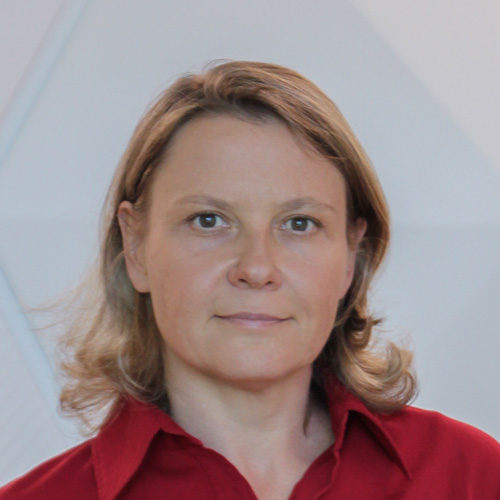
Project title: Using AI to fight ‘superbugs’
Research area: Anti-microbial resistance
In the next three decades, multi-drug-resistant bacteria are expected to become one of the largest threats to human life. As this urgency escalates, Yuliya is at the forefront of using artificial intelligence (AI) to innovate a groundbreaking platform for matching phages with bacteria.
Phages are the natural viral predators of bacteria and are at the core of Yuliya’s therapeutic strategy. Much like special agents on a mission, these phages specifically target and infiltrate only harmful bacteria. Once inside, they replicate and millions of their offspring eventually burst out, destroying the bacteria. This action eradicates the harmful bacteria while the phages, having completed their task and with no host left, naturally die off, posing no harm to the patient.
Yuliya’s challenge is twofold: finding the correct phage for each type of bacterium and optimising this pairing for the most effective therapeutic outcome.
Her pioneering work is set to revolutionise how doctors treat superbug infections, enabling rapid personalised treatments that promise quicker patient recoveries.
Dr Pamela Laird

Project title: Saving Young Lungs: A Game Changer for Aboriginal Kids
Research area: Aboriginal lung health
Bronchiectasis is a chronic lung disease that damages the lung airways and makes it hard to clear mucus. The condition disproportionately affects Indigenous kids (about 1.5% of children) and can result in early loss of life, in their 30s and 40s. It can be caused by acute respiratory infections (ARIs) such as pneumonia in early life, or even just a wet cough that does not go away. Pam’s research to date has highlighted that ongoing or chronic wet cough has been flying under the radar, not being recognised by family or doctors. After two successful Kimberley and Perth-based projects, Pam has demonstrated that if Indigenous families know about their child’s lung health and the significance of chronic wet cough, they will seek medical help. Similarly, doctors will arrange medical follow up and treat chronic wet cough if they are aware of this early lung disease symptom and how it is managed.
Early intervention is key to improving lung health to prevent, limit, or even reverse bronchiectasis.
While national guidelines stipulate the importance of early treatment of chronic wet cough, and for medical follow-up for Indigenous children who have been hospitalised with ARIs, this is not yet standard practice.
Pam’s vision is to lead a clinical trial to expand her earlier work across Australia. This will provide an economic solution for timely and effective management of early lung disease in Indigenous kids to optimise their lung health. She aims to identify feasible and evidence-based solutions for the high burden of child lung disease and its consequences.
Dr Katherine Landwehr
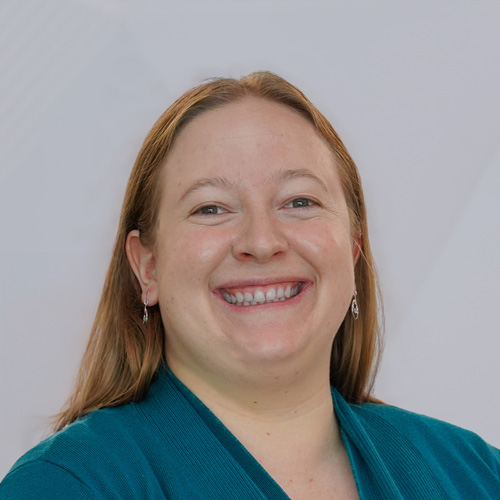
Project title: Clearing the air from vapes
Research area: Respiratory environmental health
Vaping is the health scourge of the moment, with suppliers targeting teens and young people with artificially coloured and flavoured e-liquids we now know to contain toxic and harmful chemicals.
Previous work by Telethon Kids researchers has had a direct impact on Australian policies regarding e-cigarettes, but what is still not fully known is the toxicity of the actual aerosol inhaled by users and how it changes between the different flavours. This evidence gap has been seized upon by vaping proponents trying to discredit the research.
Katherine is proposing to stay ahead of the game by testing the vape produced by e-cigarettes on human airway cells. She will use existing biobank cell samples to create 3D models which mimic human lung formation, and analyse the effects vape has on them.
Her work is expected to provide significant insight into the health effects of vaping and exposure to vaping. It is anticipated her findings will help inform policy and provide data for advocacy partners to reinforce the message that e-cigarettes are not harmless, and cement Telethon Kids as the go-to for research in Australia on the health impacts of vaping.
Dr Jess Reynolds

Project title: Early interventions for autistic children with motor difficulties
Research area: Autism
Jess is an autism researcher with a vision to create new interventions for children on the autism spectrum with motor difficulties.
Motor difficulties are a life‐long neurodevelopmental condition that includes challenges with dressing/self-care, balancing and writing and can be a significant barrier to learning, participation, and wellbeing for children in their early years of schooling and beyond. Motor difficulties affect approximately 5-6% of children but for children on the autism spectrum, the number is significantly higher, with around one-third having clinically significant motor difficulties.
One of the biggest challenges surrounding motor difficulties is that children do not have access to early evidence-based support. Commencing support earlier in life – when a child’s brain is rapidly developing and being shaped by their environment – could have long‐lasting consequences for development.
Jess is aiming to develop an innovative program to support the early motor skills of children aged 18 months to 6 years. This program will build on the expertise and experience within the autism team to develop the first movement-based video-feedback support program to enable families and teachers to help their child’s motor development.
Jess’s vision is to address the support gap so children with motor difficulties can reach their potential.
Dr Jacinta Saldaris
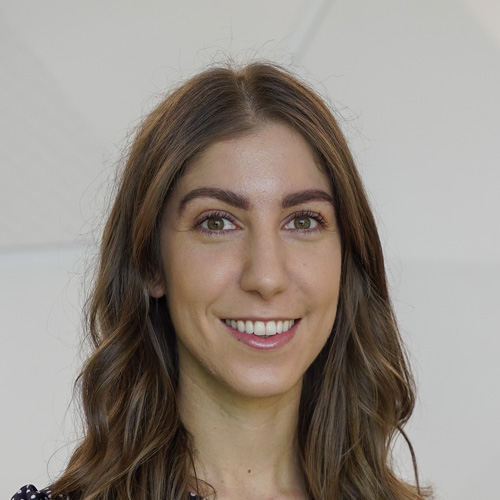
Project title: Mental health matters for children with intellectual disabilities
Research area: Child disability
Jacinta is passionate about improving the health and quality of life of Australian children and young people living with intellectual disability (ID).
ID is a lifelong condition that affects a person’s cognitive skills and behaviours, leading to difficulties in communication, understanding, problem-solving, memory, social and emotional skills. Worldwide, 3% of children have ID. Approximately 90,000 Australian children live with ID.
Around 40% of children with ID have mental health problems, but current mental health care models are failing to meet their needs. Children with ID are less likely to receive appropriate treatment compared to the general population, and parents have voiced their concern that support is only offered once behavioural issues have already become a major challenge.
It’s time to do more to improve the mental health of children with ID. Jacinta is developing preventive mental health strategies and resources for these children, allowing them to have better mental health trajectories into adulthood. Interviews with children with ID and their caregivers will explore their mental health experiences and management to uncover the moments or strategies that have enabled relief from mental distress, better mood and self-esteem, reduced anxiety, calmer behaviours – in turn building the child’s autonomy.
This new knowledge will be a crucial foundation for the future development of preventive mental health resources and interventions for children with ID.
Dr Hamsini Sivaramakrishnan
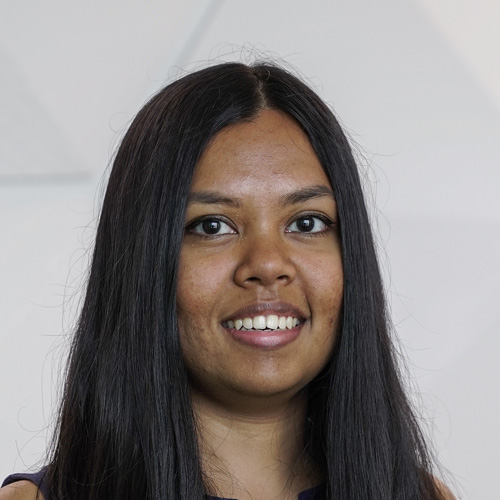
Project title: Active bodies, healthy minds
Research area: Physical activity and mental health
Every Australian child deserves the opportunity to be physically active. For the approximately 44% of children living with a chronic health condition – such as Type 1 diabetes, cancer or cerebral palsy – this is not always possible. Hamsini wants to change that. She is interested in how physical activity and sport can be harnessed to support the mental health and wellbeing of children and young people living with these kinds of chronic conditions.
Physical activity not only promotes positive physical and mental health outcomes – it provides key opportunities for development across personal and social domains. Children with chronic health conditions can experience barriers to physical activity such as a fear of injury, lack of social support, improper program facilities, and lack of staff to support their needs. Their parents and caregivers also report concerns surrounding the appropriateness of existing physical activity opportunities.
By insufficiently catering to the needs of children with chronic health conditions, existing physical activity opportunities may inherently exclude two out of every five children in Australia.
Hamsini’s research will help identify feasible, scalable, and sustainable ways to support children with chronic health conditions to participate in physical activity. She will explore how we can make existing physical activity programs in WA more accessible to these children to generate meaningful physical and mental health benefits.
Dr Penelope Strauss
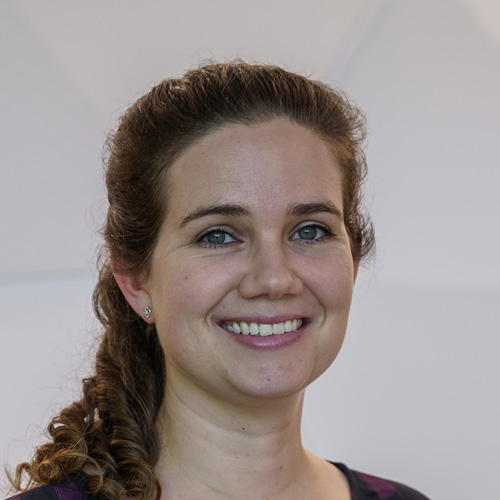
Project title: Making social media a mentally healthy place
Research area: Youth mental health
One third of young people in Australia reported that they were very or extremely concerned about mental health in 2023. In addition, suicide is the leading cause of death for young people. We need to change this and provide better support to young people.
Penelope’s vision is to improve mental health and decrease suicidality among all young people. She is particularly focused on young people at high risk for suicide, and has a desire to create equitable mental health service access for all.
We know that young people frequently use social media platforms – like TikTok, Snapchat and Instagram – to find mental health information and support. However, evidence is lacking on the accuracy of mental health content on social media, and how young people engage with this content.
Penelope will work with young people to identify how they engage with mental health content on social media, and how they navigate misinformation in this context. She will develop resources and information to help young people better navigate this kind of content so they access quality, accurate information that positively supports their mental health.
Dr Ben Wylie
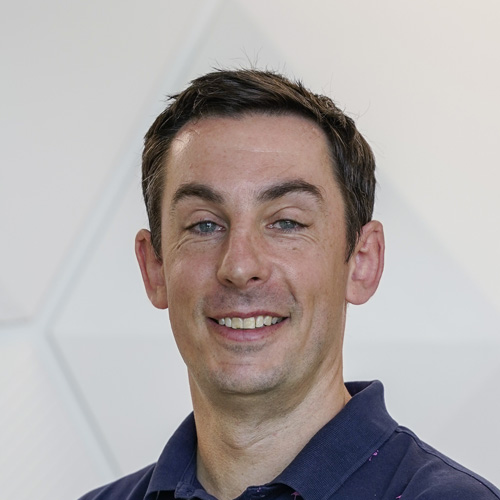
Project title: Developing new immunotherapies for kids with sarcoma
Research area: Cancer
Sarcoma is a cancer of the bone and soft tissue that is treated through an aggressive combination of surgery, chemotherapy and radiotherapy. About 15% of cancers in children are sarcomas, and one in three kids with sarcoma will die from their cancer.
Ben is passionate about improving outcomes for kids with sarcoma by developing new immunotherapies that can be applied during surgery to prevent local recurrence and stop the cancer coming back.
He is combining his expertise in the biology of immune cells with the rapidly growing field of mRNA-based therapies (technology similar to that used in the COVID-19 vaccine) to develop a new way for patients to receive cancer treatment.
Ben is using sarcoma surgery as the ‘window of opportunity’ to deliver anti-cancer drugs precisely when and where they are needed most. For patients, this will mean a safer and more effective therapy that allows them to return home sooner after surgery, without needing additional interventions.
Ben hopes his research will drive significant improvement in the standard of care for kids with cancer by introducing a safer and more effective treatment with fewer lifelong side effects.
Let’s work together
To learn more about how you can support an Illuminate Award or attend an upcoming event, please get in touch with our Philanthropy team today.
We are incredibly grateful for gifts at any level, for any duration and will work with you to build a lasting relationship to ensure your gift is directed to an area of research that matters to you most.
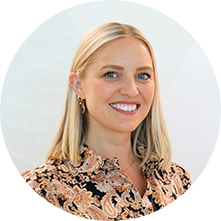
Simmone Sharp
Philanthropy Manager - Major Gifts
Email: simmone.sharp@telethonkids.org.au
